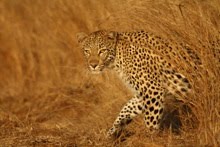It seems the Lower Austrian (Niederösterreich) government - in their infinite wisdom - has decided that 250 raptors need to be shot in order to protect endangered species in the state. As far as I can tell, the official line is that there are 26 small animal species in the region that need protection and that 200 Common Buzzards (Mäusebussards) and 50 Northern Goshawks (Habicht) need to be shot by the end of January 2009 in order to protect these endangered species.
So much of this story just gets to me. I try to be calm and rational. But this just blows my top!
The WWF Austria page on the raptor shooting decree states, "There is no scientific evidence that either Common Buzzard or Northern Goshawks are a threat to any of the 26 [endangered] species mentioned in the decree. In fact, there is no evidence of either of the raptor species even preying on 16 of the cited species." (my rough translation)
This - to me - strongly suggests that there is some other interest at play that is not driven by conservation of endangered species. At the very least, this flies in the face of what conservation thought has said for at least 60 years - killing predators does not help conservation! and is the type of thinking that dominated hunting circles in the 19th century and before. Hunters were - undoubtedly - at the forefront of conservation and we have visionary hunters like ex-US President Theodore Roosevelt to thank for national parks, conservation action and protected wilderness areas. But ever since Aldo Leopold and his contemporaries, conservation thought has been led by the idea of thinking in terms of ecosystems. Aldo Leopolds "Thinking like a Mountain" writings are so beautiful and insightful, that I posted a piece of his writing in my earlier blog (it should be just below this one). In this article, Aldo Leopold speaks of the predator-killing mentality of previous times; when hunters (and park rangers) would always shoot at predators because they were seen as vermin that threaten the deer and so threaten the beauty and naturalness of the area. They were - in short - unwanted pests that should, in a perfect world, not be there. But, it was a close encounter with a dying wolf that opened Aldo's heart and helped him see how the wolves were an integral and crucial part of the ecosystem.
In the article "Wolves and Deforestation - Thinking like a Mountain", Aldo Leopold stresses how too many deer eventually harm the ecosystem. Hunters here will tell you that they shoot enough deer here so that their numbers do not get too large and, consequently, we do not need wolves or bears or lynx in the Austrian / Tirolean forests. That these predators are dangerous and life without them is better.
This makes me want to cry.
For we cannot know the intricacies of how predators affect change on deer populations and entire ecosystems. But more importantly, there is a power, beauty and majesty that great animals bring to open spaces. (but, at least we still have the Golden Eagles! ;-)
Shooting Buzzards and Goshawks to protect endangered species they do not eat is as ludicrous as shooting Alpine Brown Bears to protect the Ibex!
A few other arguments I have come across against the shoot include:
If you are interested in seeing WWF Austria's English summary, click here, and feel free to sign their petition.
Happy birding
Dale Forbes
So much of this story just gets to me. I try to be calm and rational. But this just blows my top!
The WWF Austria page on the raptor shooting decree states, "There is no scientific evidence that either Common Buzzard or Northern Goshawks are a threat to any of the 26 [endangered] species mentioned in the decree. In fact, there is no evidence of either of the raptor species even preying on 16 of the cited species." (my rough translation)
This - to me - strongly suggests that there is some other interest at play that is not driven by conservation of endangered species. At the very least, this flies in the face of what conservation thought has said for at least 60 years - killing predators does not help conservation! and is the type of thinking that dominated hunting circles in the 19th century and before. Hunters were - undoubtedly - at the forefront of conservation and we have visionary hunters like ex-US President Theodore Roosevelt to thank for national parks, conservation action and protected wilderness areas. But ever since Aldo Leopold and his contemporaries, conservation thought has been led by the idea of thinking in terms of ecosystems. Aldo Leopolds "Thinking like a Mountain" writings are so beautiful and insightful, that I posted a piece of his writing in my earlier blog (it should be just below this one). In this article, Aldo Leopold speaks of the predator-killing mentality of previous times; when hunters (and park rangers) would always shoot at predators because they were seen as vermin that threaten the deer and so threaten the beauty and naturalness of the area. They were - in short - unwanted pests that should, in a perfect world, not be there. But, it was a close encounter with a dying wolf that opened Aldo's heart and helped him see how the wolves were an integral and crucial part of the ecosystem.
In the article "Wolves and Deforestation - Thinking like a Mountain", Aldo Leopold stresses how too many deer eventually harm the ecosystem. Hunters here will tell you that they shoot enough deer here so that their numbers do not get too large and, consequently, we do not need wolves or bears or lynx in the Austrian / Tirolean forests. That these predators are dangerous and life without them is better.
This makes me want to cry.
For we cannot know the intricacies of how predators affect change on deer populations and entire ecosystems. But more importantly, there is a power, beauty and majesty that great animals bring to open spaces. (but, at least we still have the Golden Eagles! ;-)
Shooting Buzzards and Goshawks to protect endangered species they do not eat is as ludicrous as shooting Alpine Brown Bears to protect the Ibex!
A few other arguments I have come across against the shoot include:
- the shoot is likely to be uncontrolled (or uncontrollable) and so many other raptor species (Saker Falcon, Imperial Eagles, White-tailed Eagles, Hen Harrier/Northern Harrier, Peregrine Falcon, Rough-legged Buzzard...) are likely to be "erroneously" shot.
- a Winter shoot would include many birds that are just over-wintering in the area and have joined us from elsewhere
- many of the endangered species in question are - at the moment - either on holiday in the tropics or hibernating
If you are interested in seeing WWF Austria's English summary, click here, and feel free to sign their petition.
Happy birding
Dale Forbes










.jpg)








.jpg)



No comments:
Post a Comment